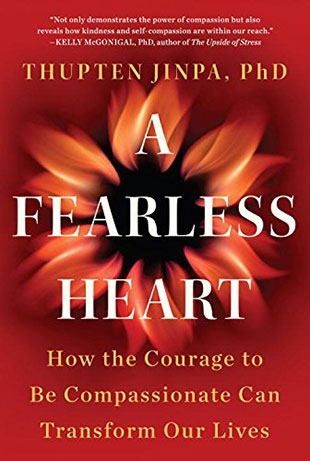"When we make a habit of compassion in our everyday lives through regular practice and action, we live with more courage, less stress, and greater freedom. In time, we will automatically see ourselves and the world in terms of the interconnectedness of ourselves and others. Our default position toward other people will be as fellow humans rather than sources of antagonism and threat. Our new, other-oriented habits will free us from the old habits of self-judgment, self-protection, and worrying about ourselves that they replace. Our relationships, from chance interactions with strangers to our intimate connections with our closest family and friends will be permeated with a sense of openness and kindness rooted in the understanding of our fundamental human condition – our shared needs, vulnerability, and basic aspiration for happiness. We will habitually respond to all people's suffering and needs with compassion, unprejudiced by who they are in relation to us. Even when it comes to a difficult person who causes us problems, we will not lose sight of the basic fact, Just like me, he too is a fellow human who aspires to happiness and does not wish to suffer. These thoughts will have entered our fast system. Our actions, too, will reflect our deep, even cellular knowledge of the impact we have on others. Our habit of kindness will be reinforced over and over by the joy we take in being kind to others and seeing them happy. Being helpful will be our new normal. We will come to embody compassion, not just admire it as an ideal. We will learn to live it through our thoughts, feelings, and behavior. In short, making a habit of compassion will transform our lives.
"Being compassionate does not make us timid or tolerant of injustice. On a societal level, in fact, a truly compassionate response to injustice stems from a sense of strong moral outrage – a form of anger, but a constructive one. It was moral outrage that spurred Mahatma Gandhi to lead the Indian people to freedom from British Colonial rule, drove Abraham Lincoln to his campaign against slavery, Rosa Parks to courageously defy bus segregation one cold December morning in Montgomery, Alabama, and Nelson Mandela to lead a lifelong campaign against the apartheid system. Thanks to their strong sense of moral outrage and courage, today our world is a better place. What sustains the amazing courage of the young Pakistani activist Yousufzai Malala is her moral outrage at the injustice of the Taliban's ban on education of girls. At the root of their moral outrage: a deep concern for the welfare of others, especially the weak and the downtrodden."
